Temple Grandin
 Although Jonathan was looking specifically at “science” nonfiction books when he posted recently about BLACK HOLE and MOONBIRD, I can’t compare those two as Newbery possibilities unless I throw this one into the mix.
Although Jonathan was looking specifically at “science” nonfiction books when he posted recently about BLACK HOLE and MOONBIRD, I can’t compare those two as Newbery possibilities unless I throw this one into the mix.
Technically a biography, Sy Montgomery’s TEMPLE GRANDIN: HOW THE GIRL WHO LOVED COWS EMBRACED AUTISM AND CHANGED THE WORLD is really about the nature of Grandin’s work, involving agriculture, engineering, economics and animal rights. Though I always point out that “no book is flawless,” I’ve been hard pressed to find the flaws in this seamless and engaging read. Montgomery creates a “you are there” feeling both without intruding as author, but also while being totally transparent as author. It is clear, from the way she constructs her sentences and from her backmatter explanations, how she has put together each piece of her vivid narrative from interviews and other sources. This is not flashy writing, and the emotional punch always comes from the story itself, not from the heavy hand of an author driving it home. “Heart-warming-ness” of the story aside (which is where the Newbery committee will have to put it), this is a wonderfully constructed piece of nonfiction, tuned perfectly to its audience in every respect. It jockeys equally for my attention with BLACK HOLE and MOONBIRD.
ADVERTISEMENT
ADVERTISEMENT
Filed under: Uncategorized
About Nina Lindsay
Nina Lindsay is the Children's Services Coordinator at the Oakland Public Library, CA. She chaired the 2008 Newbery Committee, and served on the 2004 and 1998 committees. You can reach her at ninalindsay@gmail.com
ADVERTISEMENT
ADVERTISEMENT
SLJ Blog Network
One Star Review, Guess Who? (#202)
This Q&A is Going Exactly As Planned: A Talk with Tao Nyeu About Her Latest Book
Exclusive: Giant Magical Otters Invade New Hex Vet Graphic Novel | News
Parsing Religion in Public Schools
Take Five: LGBTQIA+ Middle Grade Novels
ADVERTISEMENT


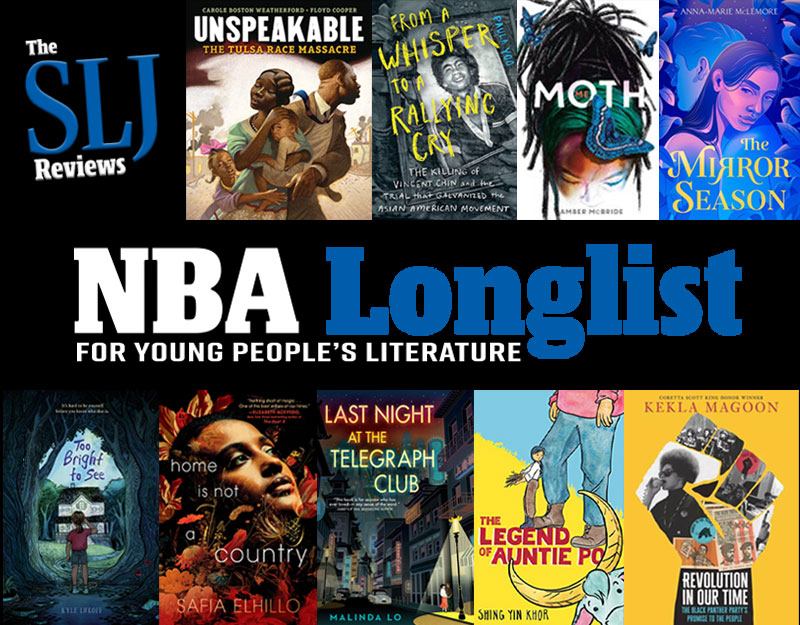
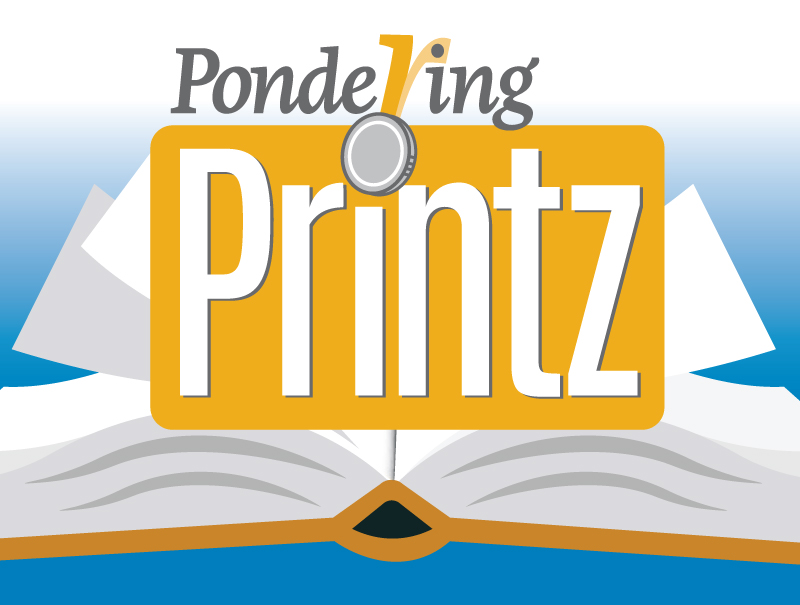
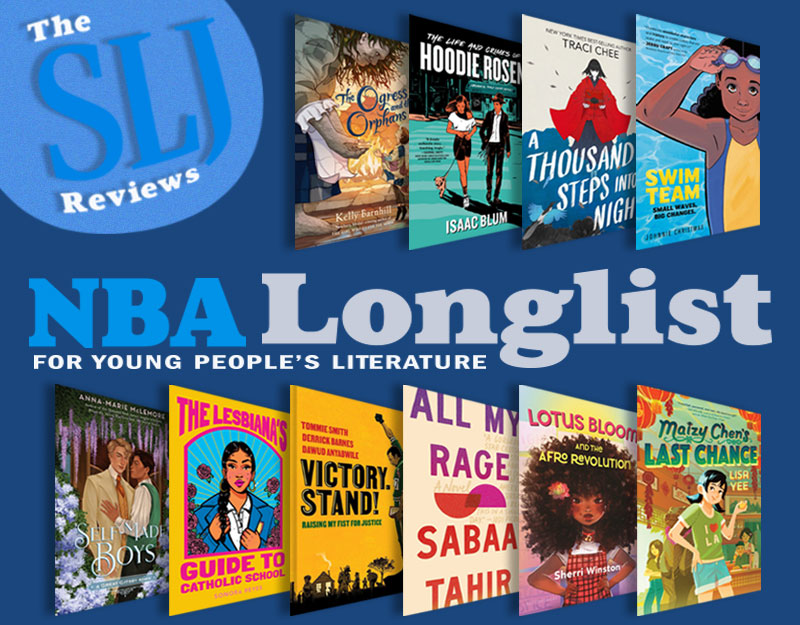
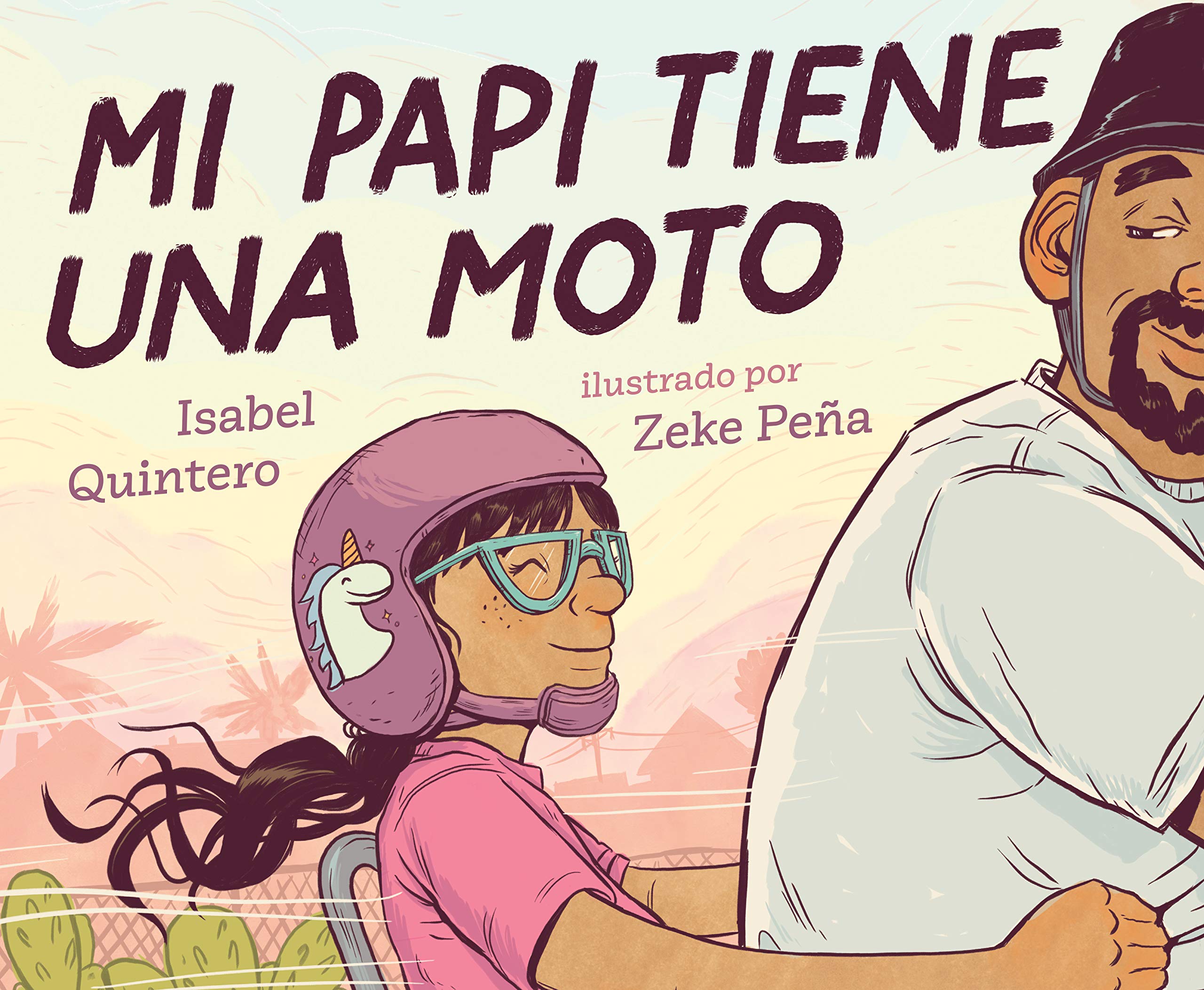
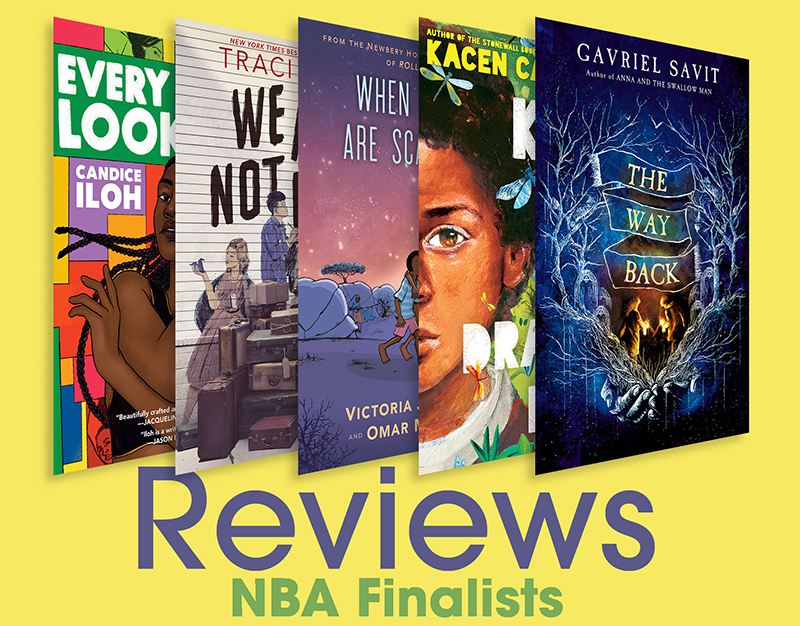
Here’s my problem with this one: http://www.amazon.com/Temple-Grandin-Embraced-Autism-Changed/dp/0547443153/ref=sr_1_5?s=books&ie=UTF8&qid=1349446176&sr=1-5&keywords=temple+grandin#reader_0547443153
Tiny, yes. Nitpicky, yes. But still. Plato did not say that! It’s a commonly misattributed quote, true. But in an informational book it just really really bothers me that that would have been missed.
Sorry, the link doesn’t go right to the page. On the opening pages there’s a quote, “Be kind, for everyone you meet is fighting a hard battle” that’s attributed to Plato.
Bella, this is a complete non-issue for me. I’m happy to have it brought to my attention, but it really doesn’t affect my evaluation of the book. The quote appears to be attributed to several different people with no clear source of authority; however, it probably wasn’t Plato. You say something curious: “But in an informational book it just really bothers me that that would have been missed.” You seem to imply that this kind of thing wouldn’t bother you quite as much in a novel. Is this true? And, if so, I wonder why you feel that way since the criteria for presentation of information applies equally to both types of books.
I’m glad Nina has been stumping for this one because otherwise I would have overlooked it due to its lack of starred reviews (one from SLJ). We often see novels recognized with few starred reviews (BREAKING STALIN’S NOSE only got two, for example), so it would be refreshing to see a nonfiction book also come out of nowhere, so to speak.
I found this completely engrossing with the exception of the three obligatory chapters on her childhood (chapters 4-6) which were to me what the southbound migratory chapters in MOONBIRD were to others (i.e. too long by half). But the autism and animal science parts were riveting. I wish we could have seen a glimpse of her relationship with her father as Temple grew older and became more accomplished. Did his views on autism in general and Temple in particular ever change? Did they ever repair their relationship? But this is a curiosity more than a criticism.
The childhood chapters are amazing! Jonathan, what do you mean? Why do you find them boring? You don’t think that they bring the young readers even closer to the subject matter and drive home that this is a real human being that had a childhood and that those childhood experiences are part of who she became? Or experiences how she had to outgrown? I agree with Nina that this book stands out because of all the elements aligned for young readers.
Jonathan,
I can’t conceive of an instance when a novel would need to accurately attribute a quote to someone. There can always be a reason, knowledgeable character, unreliable narrator, etc for information to be falsely stated. A fiction book even a realistic one has no need to keep every instance as true as possible. Why does Joe Pepitone in a novel have be the same as Joe Pepitone the person? Why does a fictional New York Yankees schedule have to be identical with the actual schedule that we know existed (in our world, but not necessarily the world of the novel, no matter how similar those two worlds may otherwise appear)? Placing a novel on the fiction shelves allows the author to fudge the facts right? If an author needs Plato to have said something in the fictional world they’ve created, I have no problem with this.
How can the criteria for presentation of information apply to fiction in the same way it applies to nonfiction? For example, if someone wants to write a historical fiction novel where the hero Benedict Arnold stops a villainous George Washington from selling West Point to the British who are we to say this is wrong? Fiction is fictional is it not?
Getting back to TEMPLE GRANDIN, I can understand Bella’s concern regarding this as a mistake that the committee may consider as this is a nonfiction book. (not that I have any issue with it).
I enjoyed TEMPLE GRANDIN but was previously spoiled by that great HBO biopic w/ Claire Danes in the title role from a few years back. Reading Montgomery’s text I kept hoping for events from the film to appear so it was a peculiar reading experience, not too different from reading a novel after seeing the movie.
I have to count myself a fan of this book, too. Not enough to champion it, but definitely enough to be swayed if someone else champions it. After reading Nina’s post, I was on board with her. The Plato attribution is unfortunate, but I think a minor enough detail not to drastically knock the book down.
I too am a big fan of this book. It has a solid style to it that keeps Grandin’s story and that of the science around it front and center. I found that the personal and informational (for want of a better word, meaning the science) to be beautifully integrated. I too, Jonathan, wondered about her adult relationship with her father, but another reader pointed out to me that since Grandin was involved in the creation of the book it has to have been her choice to keep him limited to the way we get to know him. While it isn’t on my goodreads Newbery list I would be very happy to see it honored.
mslibrarian: Children’s biographers always tend to assume that children are interested in childhood and I don’t think anything could be further from the truth. Montgomery knows this; it’s why she stuck three interesting chapters on autism at the beginning of the book. The childhood chapters aren’t poorly written, mind you, they just aren’t nearly as interesting as the rest of the book–unless you’re looking for a nonfiction book to pair up with WONDER, then it’s great.
Monica: I don’t necessarily see it as a flaw that we don’t revisit the father, but he is portrayed rather harshly (not necessarily unfairly), and I think it would have been interesting to check back with him later in life. I’m not asking for more than a sentence or two. You offer some nice speculation about Grandin’s involvement, but obviously I can only go by what’s on the page.
Eric: The quotation here is used as an epigraph, that is, it is placed at the book prior to the main narrative. Since many novels also use epigraphs (in fact, the practice may actually be more common in fiction), is it really so unfair and unreasonable to expect *any* book to correctly attribute a direct quote? What if R.J Palacio had used this quote as an epigraph? Why does the author of a nonfiction book bear more responsibility in this regard?
I get your response to the book in relation to the recent biopic. That happened to me last year a little bit with AMELIA LOST, too. I want to respond in greater depth to your fiction vs. nonfiction in regard to presentation of information, but it might be better suited to its on post . . .
Count me as a fan, too. I think it deserves consideration. After reading it, I was moved to think how fortunate she was to have grown up in a home where, although the father was not emotionally supportive, he was apparently financially supportive. Many children of her era without extensive financial resources probably suffered a much different fate. To me, the book makes the “life is a lottery” point better than Wonder.
Jonathan, I did not generalize the practice of biographers’ assumptions — I think in THIS book, those childhood chapters work. That’s all. What did you find dull in them?
mslibrarian, go back and read chapters 10-12 where much of her pioneering adult work is profiled; it’s absolutely riveting. Then go back and read about the mundane things of her childhood: she had friends, she had hobbies, she was called names, she felt out of place, ZZzzzzz. I did like the bits in those chapters that helped me understand about autism or that suggested who Temple Grandin might become in the future. But most of the other growing up stuff? Think: southbound migratory bird flights. Other readers may feel differently, and that’s okay. As I mentioned, I think the WONDER crowd will love those childhood chapters. In fact, I think it’s the reason why TEMPLE GRANDIN takes the Schneider.
@Eric – your thoughts on accuracy or inaccuracy in fiction inspired me to write a whole list of questions over here: http://crossreferencing.wordpress.com/2012/10/06/accuracy-in-fiction/
I hope I didn’t misrepresent you. Feel free to chime in on the comments.
And she was magical — offering her house as a neighborhood/children hang out; and she was the center of contention between her mother and her father; and her behaviors at school are unusual and give the readers a vivid sense of what other children would observe and either reject or embrace her. I respect your Zzzzzz comment — because that is your reaction (like mine to the southbound of Moonbird’s journey) but I cannot empathize.
Jonathan, I couldn’t disagree with you more about the childhood chapters. Young readers want to know: how did it feel to grow up this way? How does a person with this experience of the world deal with such “mundane” things as being in school, having friends, etc. I thought that Montgomery’s narrative did an amazing job of expressing this, and gave us the necessary panorama to understand how and why Grandin came to the work she did.
You know how a movie biopic always suffers….telling the story of a life does not naturally make a compelling movie arc, and there’s often something dissatisfying in the pacing. A written biography can suffer the same. One of the strengths of this book, I think, is how it melds biography with a story of applied science/politics. Montgomery does a skillful job of wrestling both into a just-right-length narrative. One section may drag a little for one reader over another, and that’s the risk of doing what she’s done. But I think she pulls it off.
Anytime we as adult critics use the word “boring” I think we need to check in with our vacation calendar first to see if it’s the burnout talking.
Temple is magical, but she’s not magicial because of what happened in her childhood. She’s magical because she’s the only person who has been recognized for her lifetime achievement by both People for Ethical Treatment of Animals and the Meat Industry Hall of Fame. I never said the childhood chapters were dull or boring, I said that they weren’t as interesting compared to the other chapters. I fully expect that others will find them riveting. I’m on the bandwagon here. I don’t know why I keep getting pressed to make critical comments about this one. 🙁
Jonathan, perhaps because this is one of those really rare books that really don’t have flaws and we are just not used to critiquing something that is near perfect?
Jonathan, it was the “ZZzzzzz” …pretty clearly suggests “dull or boring.” If I read back through your comments closely I see your finer line.
I like this book a great deal, but can we talk about the over-the-top chapter endings? Examples: “And then Temple got a lucky break. A door opened for her — and changed the fate of farm animals forever.” “…The largest kosher slaughter plants in the US no longer hang live cattle upside down by one leg — because Temple was willing to go to hell and back for the animals.” Each one works in its context; but in aggregate, I have to say that they started to grate.
Martha, you’ve touched on the one thing I quibbled with too. It’s not just the chapter endings; she uses provocative short sentences wherever she wants a little “punch” in the narrative tension. I decided, in the end, that it wouldn’t stick out so much to the intended audience, and that it was actually working for them. Am I out to lunch?
Finally read this book. I liked it, but I didn’t think it was distinguished. I’m one of those many, many readers, both now and as a child, who was very interested in (as they say) the Childhood of Famous Americans, and I certainly don’t think it’s far from the truth that kids are interested in how famous people got where they are… and in seeing the ways their current life experiences might correspond with those of an extraordinary person in childhood. I thought Montgomery did a good job of balancing the ways in which Grandin was different and where the aspects of her childhood were “ordinary”.
But I thought the organization of the book suffered–perhaps some identity crisis about what this book was really supposed to be, a straight biography or a focus on one aspect of Grandin’s life–and that the writing was awkward at times. I pull this sentence out as an example in my goodreads review: “That theory was made popular in a best-selling book by Bruno Bettelheim, a doctor who had survived a Nazi concentration camp and who thought something awful must have happened to young autistic patients to make them so withdrawn.” Is the author attempting to draw a connection between the author’s concentration camp experience and his misguided theory? If so, it isn’t explored; if not, why mention it?
I do think, as Nina says, that this book will “work” for young readers (which is its purpose), but I don’t think it’s great literature.